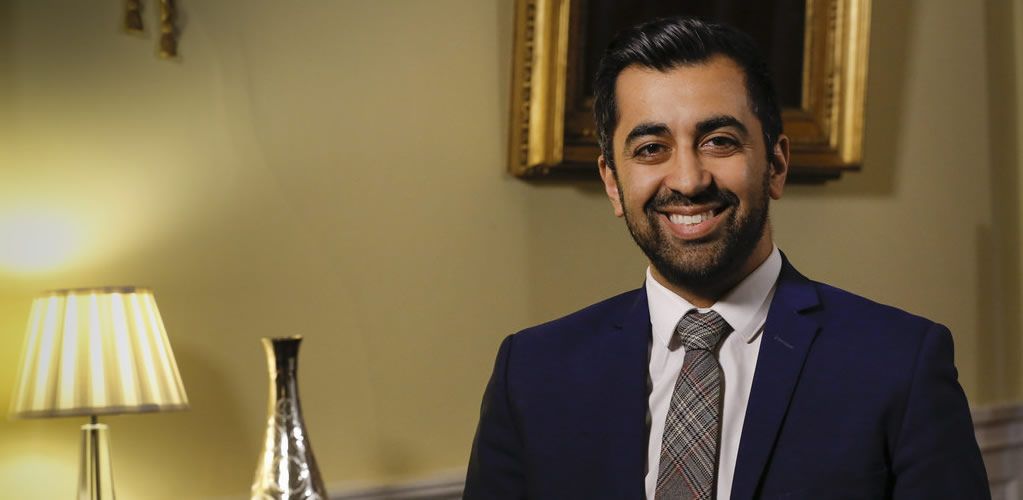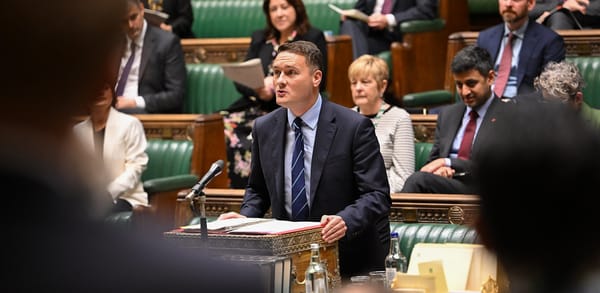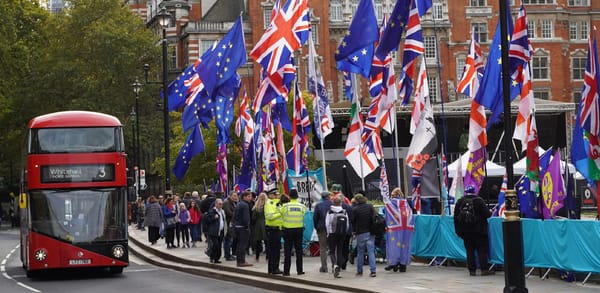A new era in Scottish politics
Humza Yousaf has been elected Scotland’s first ethnic minority leader. His task is to put his own stamp on the SNP, restart the grassroots independence campaign, focus on independence, reach out to critics and provide a better pitch to the public.

Humza Yousaf has been elected Scotland’s first ethnic minority leader. His task is to put his own stamp on the SNP, restart the grassroots independence campaign, focus on independence, reach out to critics and provide a better pitch to the public.
A fter a bruising leadership contest, Humza Yousaf has won the SNP leadership contest.
He took slightly less than 50% of first preference votes and was taken over the line by second preference votes. Kate Forbes was some way behind on first preference votes while Ash Regan was a long way distant and dropped out after the first round of counting. His election represents the historic moment that a member of an ethnic minority becomes the First Minister of Scotland.
Humza Yousaf was depicted as the ‘continuity candidate’, and his main task will be to demonstrate that he is his own man and to put his own stamp on the job and on the SNP, that task will be made easier by the recent resignation of the SNP chief executive Peter Murrell. His accession to the top job in Scottish politics is made easier by the support he got from many elected SNP politicians and the fact that out of all the candidates he was the one who was most likely to ensure the continuation of the deal between the SNP and the Greens.
However, Kate Forbes gave him a very close run, and it will be important for the new leader to ensure that both she and Ash Regan are offered important posts in his new government. That is vital in order to begin to heal the divisions within the SNP and the wider independence movement. The first preference votes were as follows:
- Humza Yousaf: 24,336 (48.2%)
- Kate Forbes: 20,559 (40.7%)
- Ash Regan: 5,599 (11.1%)
The second round of voting went as follows:
- Yousaf: 26,032 (51.6% / 52.1%)
- Forbes: 23,890 (47.3% / 47.9%)
- Didn’t Transfer: 572 (1.1%)
Humza Yousaf picked up 1,696 second preference votes, Kate Forbes won 3,331 second preference votes from those who backed Ash Regan in the first round broke heavily in favour of Kate Forbes, but not by a big enough margin to take her over the line.
Humza needs to avoid the mistake made by Liz Truss, who won the Conservative leadership by a narrow margin and then set about rewarding her own supporters and excluding and marginalising those who had backed her opponent Rishi Sunak. In the interests of party unity, both Kate Forbes and Ash Regan and their supporters need to be offered prominent positions in the new administration. However, it is clear that the social media warriors whose support for Ash Regan was vituperative and bilious enjoy relatively little backing amongst the membership of the SNP, and undoubtedly even less amongst the wider population, although it is important to stress that the candidates themselves are not responsible for the bile and bitterness of those whose aim is to make toxic social media even more toxic than it already is.
A UK General Election is in the offing, it is critical that the new leader engages with that wider movement and restarts the grassroots independence campaign. He will need to reach out to his critics within that wider movement and to demonstrate that ‘continuity candidate’ does not mean stasis and stagnation and more kicking the can down the road. There is going to be a UK General Election, most likely sometime next year, and the SNP is going to need a better pitch to the public than asking nicely yet again for a Section 30 order for a referendum.
There is considerable suspicion about Humza Yousaf amongst some of those who left the SNP during Nicola Sturgeon’s time at the helm, some of whom are already touting their conspiracy theories. However hopefully the more reasonable amongst them will be willing to give him a chance to prove that he is his own man and that he is not merely a creature of the previous leadership. He must seize the opportunity presented by Nicola Sturgeon’s resignation and stake out a new course for the party with independence firmly in its sights. Continuing the bitterness and divisions of the past few years will only benefit the British nationalists. He can do that by centring independence in his administration and by building arguments for independence that can reach across party divides. One possible route to that lies in developing a replacement for the discredited GERS figure which provides British nationalists with an annual carnival of too wee too poor.
On the plus side, Humza Yousaf’s election avoids accusations that the SNP is moving to the right, he promises to continue the progressive politics of social justice which appeal to younger voters who are overwhelmingly more likely to support independence. He is also the leader who is most likely to ensure the continuation of the Bute House agreement with the Scottish Greens which guarantees a pro-independence majority government at Holyrood. His election means that the new leadership will not immediately come into conflict with certain elected SNP politicians who, perhaps unwisely, had spoken out in strong terms against one of the other candidates. We have avoided the potential for a damaging split in the SNP and for an unstable minority government at the mercy of Conservative mischief-making.
Humza is also the only leadership candidate who had promised to take legal action to challenge Alister Jack’s unprecedented use of a Section 35 order to veto legislation passed by Holyrood. No matter what your views on the Gender Recognition Reform bill are, Jack’s use of a unilateral veto to stop it from passing into law is a dangerously anti-democratic step which threatens the very basis of the devolution settlement and which must be challenged as vigorously as possible to make sure the Tories don’t think that they can easily take such a step with future Scottish legislation that they disapprove of. If the Tories are allowed to get away with this without a fight, they will certainly do it again, and Scotland’s Parliament will find itself effectively neutered, able only to pass legislation that meets with the approval of a Conservative party that has not won an election in Scotland since 1955.
It is also important to recognise that we now have a pro-independence First Minister who is a Scot of Asian heritage. That is something to celebrate as it helps to prove that the campaign for Scottish independence is inclusive and outward-looking and is not motivated by the regressive politics of ethnic nationalism, an accusation often hurled at Scottish independence supporters by those who themselves rail against immigration and who demonise asylum seekers and refugees.
We are in a new era now. All of us who support independence, no matter which candidate we preferred, must give Humza Yousaf the benefit of the doubt and allow him the space to put his own stamp on the highest office in Scottish politics.

— AUTHOR —

|
▫ Wee Ginger Dug, also known as Paul Kavanagh. Blogger who writes and talks about UK Politics and Scottish Independence. |

|

|

|
Sources
▪ Text: This piece was originally published in Wee Ginger Dug’s blog and re-published in PMP Magazine on 28 March 2023, with the author’s consent. | The author writes in a personal capacity.
▪ Cover: Flickr/Scottish Government. - Humza Yousaf. (Licensed under a Creative Commons Attribution-ShareAlike 4.0 International License.)







[Read our Comments Guidelines]